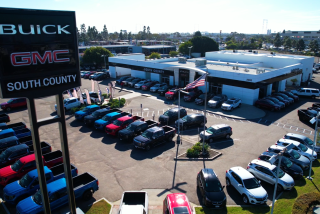General Motors Boosts Profit Forecasts for Quarter, Year
- Share via
General Motors Corp., the only U.S. auto maker to gain market share last year, boosted profit and production estimates for the quarter and full year, citing better-than-expected sales in the U.S.
First-quarter profit, excluding the Hughes division and some expenses, will be $1.20 a share, up from a forecast of $1, the world’s largest auto maker said. The full-year forecast was raised to $3.50 from $3.
The company also will sell as much as $3 billion in convertible debt securities as part of an effort to strengthen its balance sheet, Chief Financial Officer John Devine said.
General Motors raised its forecast for industrywide sales this year by about 1 million vehicles to 16 million, helping lift U.S. stocks, including rivals Ford Motor Co. and DaimlerChrysler. Chief Executive G. Richard Wagoner’s introduction of no-interest loans spurred sales in 2001, and the falloff when the offers expired last month wasn’t as steep as auto makers predicted.
GM shares rose $2.37 to $55.48 and helped push the Dow Jones industrial average past 10,000. Ford rose 65 cents to $15.23 and DaimlerChrysler jumped $1.85 to $39.73. All three trade on the New York Stock Exchange.
Devine plans to boost the auto maker’s balance sheet by $10 billion this year through the convertibles offering, about $4.2 billion in cash from the sale of Hughes Electronics Corp. to Echostar Communications Corp. and taking a dividend of as much as half the profit of unit General Motors Acceptance Corp.
The profit forecasts exclude costs for reorganizing the European business and possible costs of meeting new European laws requiring auto makers to help dispose of used vehicles.
Analysts were expecting GM to earn 87 cents a share for the quarter, including a loss of 10 cents to 15 cents attributable to Hughes, according to Thomson Financial/First Call.
GM earned 50 cents a share in first-quarter 2001, excluding some costs and including a loss of 9 cents from Hughes. For the year, earnings were $3.23, excluding some expenses and including a 41-cent Hughes loss.
The company estimated the gain from the Hughes sale will be $14.4 billion, based on the unit’s value and Echostar’s closing price as of Dec. 31. The deal still needs regulatory approval.
Devine said GM expects to build 5.1 million cars and trucks this year, 100,000 more than previously planned. GM raised first-quarter production by 20,000 vehicles to 1.34 million, up 10% from a year earlier. For the second quarter, it expects to build 1.425 million vehicles, up 4%.
The company’s revised 2002 industrywide sales forecast of 16 million is still below the 17.2 million cars and trucks sold last year. Auto makers expected the decline because high fourth-quarter demand generated by no-interest loans may have taken sales that normally would have come this year. The decline in January was less than forecast.
GM also said it has $136.2 billion in assets in special purpose entities, providing additional disclosure after Enron Corp. revealed it had partnerships tied to company executives and sought bankruptcy protection.
The auto maker said it uses the entities in a manner “consistent with conventional practices” and that no officers, directors or employees hold equity interest in the partnerships. GM said it uses the entities in financing and insurance operations to bundle and sell mortgages and auto loans.
In other news, General Motors and union workers held rallies at plants in three Midwestern states, warning that the U.S. auto industry would lose more than 100,000 American jobs if a proposal to raise fuel economy standards were adopted.
The rallies in Pontiac, Mich., Toledo, Ohio, and Janesville, Wis., are the latest effort by GM to counter a proposal by Sens. Ernest F. Hollings (D-S.C.) and John F. Kerry (D-Mass.) to raise the average fuel economy of new cars and trucks to 35 miles a gallon by 2013. Sen. Carl Levin (D-Mich.) and GM officials said the Corporate Average Fuel Economy, or CAFE, standards unfairly discriminate against American auto makers.






